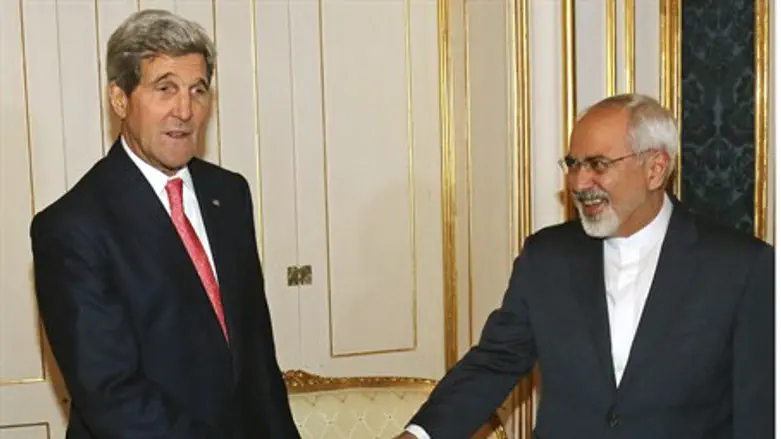
Less than a week after announcing their "framework deal" over Iran's nuclear program, Tehran and Washington have been "irritating" each other with conflicting reports about the details of that agreement, a top US official said.
Just one day after the deal was announced by the respective negotiating teams in Switzerland - and hailed as a "good deal" by US President Barack Obama - a report in a US paper showed how the English- and Persian-language versions of the text of the deal actually conflicted with each other.
It has also since been noted that the framework agreement - which has yet to be officially implemented - omits one glaringly-important detail: precisely when and how the sanctions on Iran would be rolled back. Iran wants those sanctions removed immediately, while the US wants a gradual rolling-back of the sanctions in a way which would ensure they were not entirely lifted until Iran was confirmed to have fully complied with its side of the accord.
In an interview Tuesday with MSNBC, US undersecretary of state for political affairs Wendy Sherman admits the conflicting messages are casting a dark cloud over the deal.
"I think we've each been irritated with each other in some of the things we've said," Sherman said.
"Even though we discussed this before we left - we understood that our narratives were likely to be somewhat different - but we pledged to try not to contradict each other."
A lot of work remains to be done before the June 30 deadline for the deal's actual implementation, Sherman cautioned, although she insisted both sides were in agreement regarding the overall terms.
But the pressure is on for the White House to iron out the emerging complications and disagreements to form a genuinely "good" deal which would prevent Iran from obtaining a nuclear weapon. After Obama's White House address on Friday, Republican Senator Mark Kirk announced that the Kirk-Menendez Bill to tighten sanctions against Iran would be postponed until the June 30 deadline - but no further.
A separate bipartisan bill that would allow Congress to approve or reject any nuclear agreement that President Barack Obama reaches with Iran is still in the works, and Senate Foreign Relations Committee Chairman Bob Corker stated Thursday that the Committee will mark up the bill on April 14 - and it could be brought to vote anytime after that.
